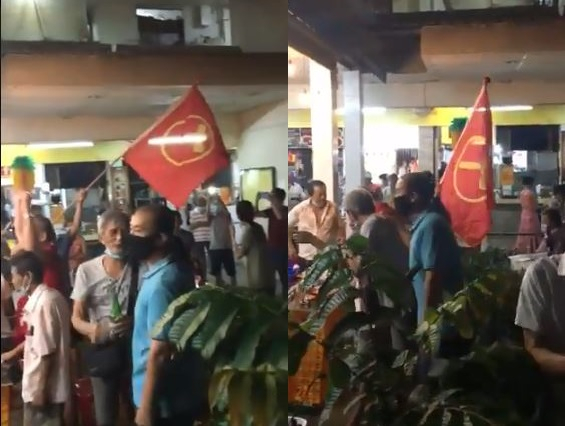Singaporeans came out to vote in large numbers despite the coronavirus scare in the recently held elections. The 96 percent voter turn-out was proof that the voters wanted to make a statement that they are done with the stability of the government, instead, as they voted for a strong opposition this time.
The ruling People's Action Party (PAP), won the election, but it has more reasons to reflect on the results. For the first time in the history of Singapore politics, the opposition has won 10 seats. This is why the Workers' Party (WP) is celebrating despite losing the election.
Apart from PAP, WP is the only party to have elected members of parliament in Singapore. A closer look at the results explains why PAP is relieved but not happy about the results.

Vote Share, Surely A Matter of Concern
First of all, this is the worst performance for PAP in 40 years. For the first time in four decades, PAP has recorded its lowest vote share. The party recorded 61.2 percent of the vote share compared to 70 percent in the 2015 elections.
It has lost nearly nine percent of voters despite winning 83 of 93 seats in parliament. Whereas the WP has secured 50.49 percent vote share, which is massive while considering the fact that PAP is the only party that has been in power in Singapore since 1959. PAP suffered a loss in its vote share in almost all GRCs.
Sengkang, Aljunaid GRCs Give Wings to WP
WP has got new wings by winning the newly formed Sengkang GRC. It won the GRC with 52.13 percent votes against 47.87 percent by the PAP. Four percent lead is a big achievement for WP against the longest surviving party in Singapore. WP won Sengkang GRC under the leadership of Jamus Lim.
Further, WP not only retained Aljunied GRC, but also won it with a wide margin compared to PAP. It secured 59.93 percent votes against PAP's 40.07 percent. WP chief Pritam Singh had led WP in Aljunied.
In addition, WP's Dennis Tan, who is a newcomer to politics, beat PAP's Lee Hong Chuang in Hougang, single-member constituency (SMC) with a large margin against PAP candidate. Tan secured 61.19 votes against 38.81 percent votes of Hong Chuang.
I am currently at the legendary Workers’ Party supporters†Hougang coffeeshop at Block 322 Hougang Avenue 5. Hougang is the stronghold of WP since 1991.
— Ericssen (@EricssenWen) July 10, 2020
The enthusiastic supporters keep chanting “Workers’ Party, Workers’ Party! Amazing vibe!! #GE2020 #SGElection pic.twitter.com/vZTALaOQZU
Last-Minute Change Saves PAP's Face in East Coast
Thanks to its last-minute changes to field prime minister-in-waiting Heng Swee Keat in East Coast GRC that PAP won the seat against WP. However, the party secured only 53.41 percent of the vote against 60.73 percent vote share it enjoyed in 2015, whereas WP recorded 46.59 percent of the vote share that was 7.29 percent more than its 2015 result.
In the West Coast GRC, PAP experienced a loss of 26 percent of votes. Though PAP won the constituency, it secured only 51.69 percent vote share. Its closest opponent Progressive Singapore Party (PSP) secured 48.31 percent vote share that is an impressive number as it brought PAP down from its massive 78.57 percent vote share in 2015.
PAP Retired 20 Senior MPs
This time, PAP brought in a major change by not fielding 20 existing MPs, who are senior leaders of the party including ministers. Instead, the party fielded first-time candidates in single-seat wards. This decision might have been arrived at to take on newcomers being fielded by WP.
In fact, PAP won 13 out of 14 single-member constituencies (SMC) but saw a major drop in its vote share when compared to 2015 results. It gained 70 percent vote share in four SMCs, and in the rest, it recorded nearly 60 percent.
workers party world domination‼ï¸â€¼ï¸â€¼ï¸â€¼ï¸â€¼ï¸ pic.twitter.com/8Bth2g8Ixy
— PRITAM NATION WONðŸ¥°â€¼ï¸ (@nnerdya) July 10, 2020
Those who proved their mettle from the PAP were still its senior members including Tharman Shanmugaratnam from Jurong GRC, Teo Chee Hean of Pasir Ris-Punggol GRC, Ng Eng Hen from Bishan-Toa Payoh GRC.
Thus, considering all these factors, it looks like for the first time Singapore will have a strong opposition in its parliament history and politics and that has given WP enough reason to celebrate.









